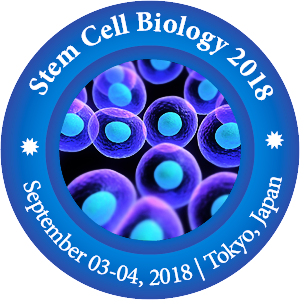
Raghvendra V Tey
Associate Professor, Pathophysiology, Saint Georges University, Grenada, W.
Title: Regenerative Medicine in MD course: Current Scenario, Challenges & Future
Biography
Biography: Raghvendra V Tey
Abstract
Current Scenario: As an insider, a simple approach like cell therapy involving, administering a few millions of highly flexible cells which can transform the functional and structural behaviour of that site, turned out to be a revolutionary idea. Though the idea looks quite simple and feasible, it has met lot of resistance. The age old approach where a synthetic or refined form of a natural chemical can cure or manage the disease is been quiet steadily replaced by Cell therapy, in effect to the realization of the side effects, cost & effectiveness of the prior approach.
Challenges: The idea that cells can be used as therapies and can be procured and processed in an ordinary clinic is very empowering to the medical fraternity and poses an existential challenge to the big pharmaceuticals with huge investments. It’s very disruptive to the manner in which medicine is practiced today. It breaks all the inter-disciplinary barriers and that is the reason, its intimidating to many established disciplines and acceptance is slow but steady.
Future: The Idea of Integrated curriculum approach being adopted in many medical universities (Mayo Clinic, USA) across the globe. In here, doctors in every year of their training are helped in understanding the problem in every organ system using their basic science knowledge. How a disturbance at a cellular/molecular level manifests as a disease with clinical presentation can all be explained in detail. The story of Stem cells changing the course of a disease process fits naturally & nearly perfectly into this background understanding with integrated curriculum approach.
Conclusion: The future looks bright for cell based therapies in medical curriculum & practice as they are in line with today’s medical curriculum. This can bridge the shortage of physicians globally. Looking beyond profits, cell therapy would reinstate people’s belief in their own hidden powers, unknown to mankind until recently.

